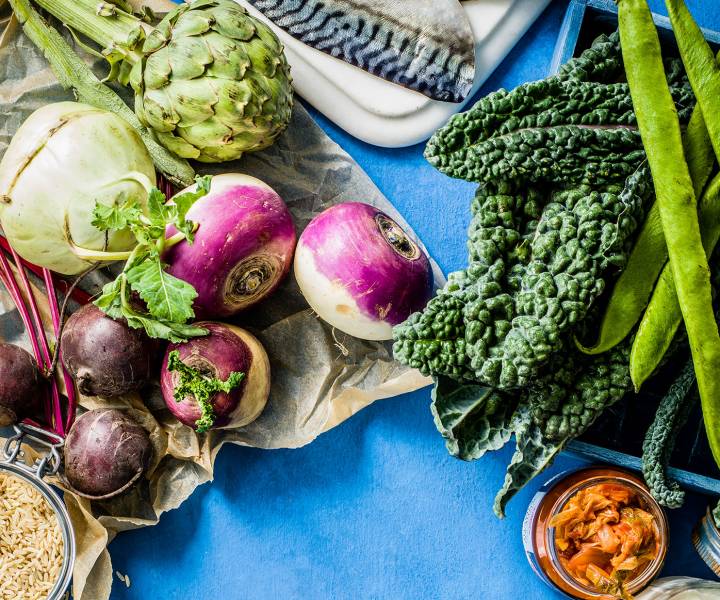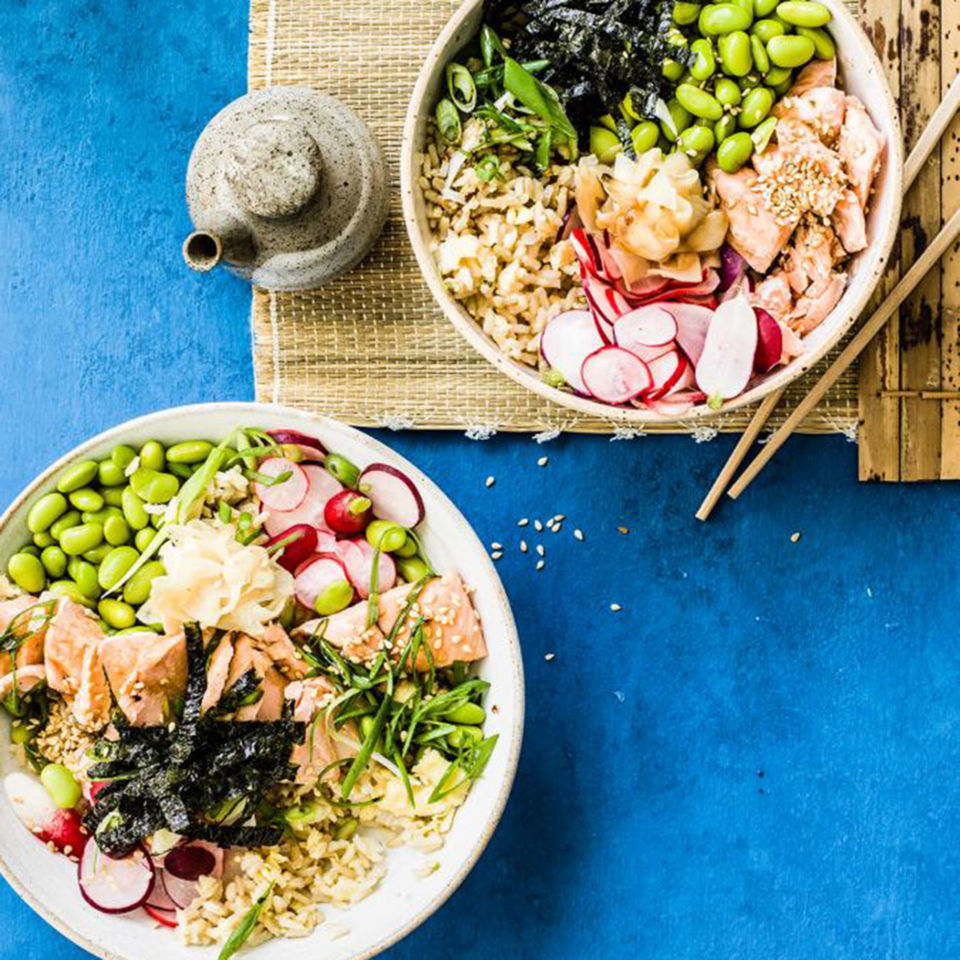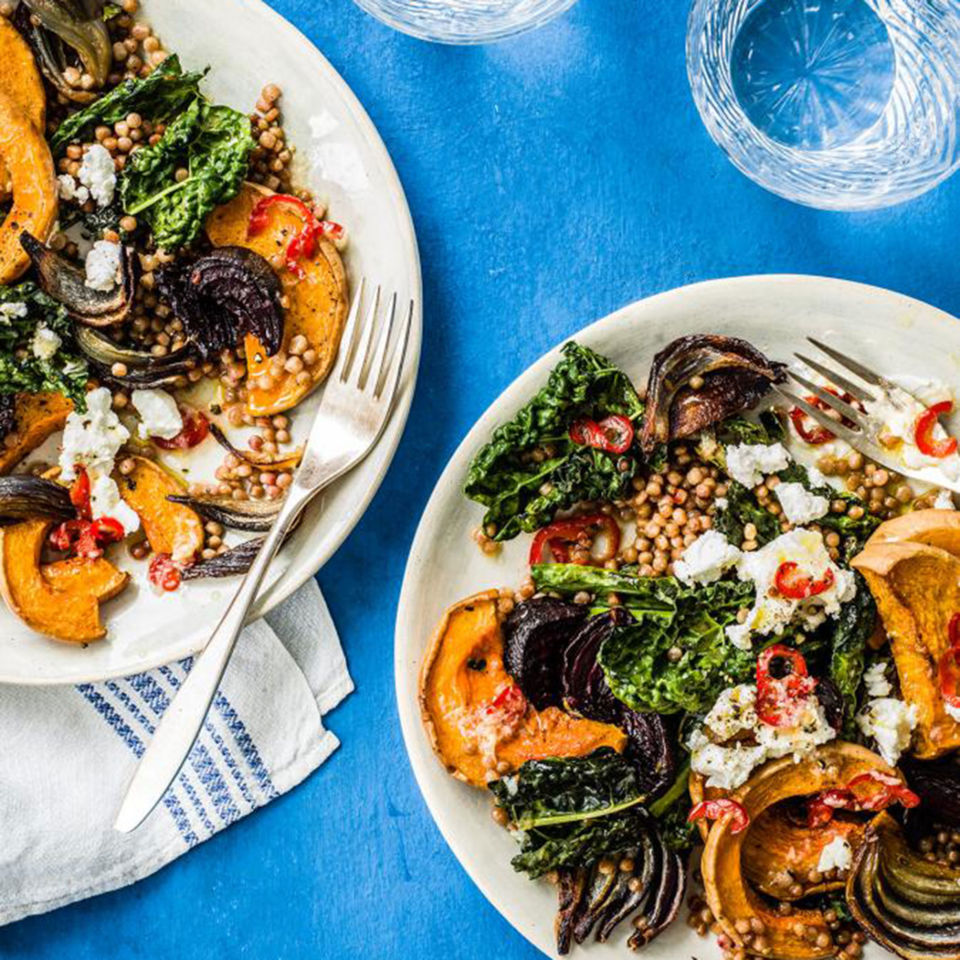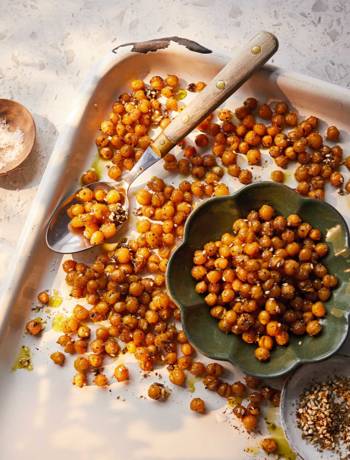Health
Can you eat yourself happy?
by Helen Foster

In terms of improving our mental health, what we put in our mouths matters. Helen Foster reports on the new science of nutritional psychiatry.
Ten years. That’s how long it’s been since the first study into food and mood was published. And ever since, the evidence linking what we eat to how we feel has been growing. ‘So extensive are the findings that we have got to the point where we can analyse all the results together, and we’ve shown that the wrong diet can increase the risk of depression by as much as 30 per cent,’ explains Professor Felice Jacka, author of the new book Brain Changer: The Good Mental Health Diet and one of the world experts in nutritional psychiatry – the science of using diet to improve mental health.
‘Just as important is that we’ve seen a clear positive reaction to a change in diet.’ Jacka is referring to her ‘Smiles’ trial, published in 2017, in which people with depression were given advice on how to eat to improve mood. Within 12 weeks, a third of them reported improvement. While nutritional psychiatry is still a relatively new field of research, scientists are becoming clearer on the reasons why our mood may be affected by what we eat. Inflammation, for instance, is a normal response by our immune system to fight infection. It can, however, be a less helpful response to eating certain foods that trigger an inflammatory reaction in the body. ‘When inflammation occurs, the body produces chemicals called cytokines that directly produce depressive symptoms,’ explains Professor Jacka. Inflammation also interferes with the rate at which the brain creates new neurons, shrinking the size of a part of the brain called the hippocampus, which is involved in emotional regulation.

Research also suggests that levels and balance of gut bacteria (your gut microbiome) affect mood; nurture your microbiome with the right foods and your brain will thank you. Not only can the right balance of bacteria help to control inflammation in the body, but some bacteria directly produce neurotransmitters like serotonin, a chemical that makes us happy and GABA, a chemical that can help keep us calm. ‘These then send signals up the vagus nerve that runs from the gut to the brain, and can change mood,’ says nutritionist and functional medicine coach Fran McElwaine. ‘The right balance of gut bacteria is very important for mental health.’
She suggests encouraging good levels of bacteria by eating fermented foods such as sauerkraut and kimchi, and increasing fibre from plant sources. So what else should we be eating? Professor Jacka has found that simply following a healthier diet – without other lifestyle modifications – results in a reduced risk of depression. Her research is backed by other studies that suggest eating closer to a traditional, pre-industrial diet – that is, one that’s rich in plant foods, fish, unrefined grains and fermented foods, with less meat and highly processed foods – has a beneficial impact on mood.

This may vary from country to country – but whether this is the Mediterranean diet or Japanese cuisine rich in fish, seaweed, green tea and tofu – unprocessed, real foods are best. Other dietary must-dos include:
EAT PLENTY OF PLANT-BASED FOODS
This doesn’t just mean fruits and vegetables. Wheat, rice and other grains are plant foods, as are herbs and spices. All of these contain antioxidants that have an anti- inflammatory effect, and are good for our gut bacteria, which thrive on a plant-heavy diet. Researchers at New Zealand’s University of Otago found people felt happier just one day after consuming plenty of fruit and vegetables.
OILY FISH
The omega-3 fats in oily fish like sardines, salmon and trout are potent anti-inflammatories. Studies in Japan also found brain cells treated with omega-3s keep creating important new neurons – even when under stress.
DON’T QUIT MEAT
Instead, moderate how much you eat. In Professor Jacka’s research she found that a little meat boosted mood; too much meat, however, was linked to lower levels of mental health. She suggests eating 3-4 small servings of 65-100g a week – ideally, choosing grass-fed beef or lamb (this is richer in omega-3s), instead of processed meats like ham or sausages.
EAT FAT
‘Don’t be afraid of healthy fat,’ says Fran McElwaine. ‘The fear of fat is one of the biggest mistakes people make with their diet. Saturated fat is inflammatory and should be avoided, but the fats in nuts, seeds, olives and avocados have an anti-inflammatory effect.’ Sugar – which is highly inflammatory – should also be avoided.
With the evidence mounting, it probably won’t be long before the medical establishment takes notice. ‘Currently the average GP doesn’t really get much nutritional training,’ says Deborah Colson, who until very recently worked at the Brain Bio Centre, the UK’s leading organisation promoting the link between mood and food. ‘We also don’t tend to have a culture of preventing illness in the UK – we just focus on treating it. I’m hoping the work Professor Jacka and others in the field are doing will help change this.’ The good news is you don’t need a prescription for salmon fillets and a large salad from your doctor to start harnessing their benefits. You just need to put them in your shopping basket each week. Now, that’s news to make you feel good.
GOOD MOOD FOODS
TURMERIC: A powerful anti- inflammatory, turmeric acts like an anti-depressant by raising levels of BDNF, a chemical that supports healthy brain cell growth.
FERMENTED FOODS: Foods like natural yogurt, kimchi, kefir, miso and kombucha appear to have a positive effect on mood.
LEAFY VEGETABLES: These are particularly high in the vitamin folate; studies show many depression sufferers are low in folate.
BRAZIL NUTS: Low levels of selenium have been linked to depression by studies at New Zealand’s University of Otago, so stock up on selenium-packed Brazil nuts. One or two a day is all you need.
Now try our recipes:
Tray-baked squash, beetroot and giant couscous with goats' cheese












